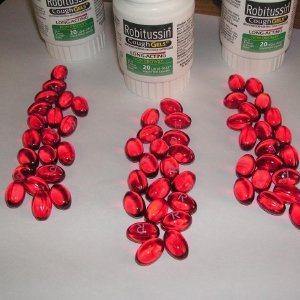Teenage Boys and Over the Counter Drug Abuse – A Habit More Prevalent Than Ever

According to new research, young men and adolescent boys are more likely to use over-the-counter drugs than young women and adolescent girls are. The standard viewpoint for years has been that males tend to abuse drugs more frequently than women do, but actual evidence out of a Cincinnati, Ohio research project paints the prevalence of male substance abuse over female substance abuse as an irrefutable fact.
The University of Cincinnati set forth on a research project to uncover the details of young adult substance abuse, specifically as it pertains to adolescents and teenagers abusing over the counter drugs.The University of Cincinnati looked at over-the-counter drug abuse amongst students from seventh grade through twelfth grade, across one-hundred and thirty-three schools.
Research Results Indicate Heavy Substance Abuse Amongst Adolescent Males
For the most part, substance abuse statistics amongst men and women have been a narrowing gap, meaning that gender differences in drug use and alcoholism have grown less prominent with each passing year. For example, from 2000 to 2016, female abuse of pharmaceutical opioid pain relievers increased by more than four-hundred and thirty percent, whereas male abuse of pharmaceutical opioid pain relievers increased by only two-hundred and fifty percent. Across almost all demographics and ages and in all geographic areas, women are catching up to men in substance abuse trends.
Except for young adult and adolescent/teen substance abuse.
According to the research, ten percent of students in the above grades admitted to abusing over-the-counter drugs. These are drugs like cough syrups, low-strength pain relievers, inhalant-type drugs, antihistamines, decongestants, etc.
To have ten percent of young people experimenting with these types of medicines is concerning, to say the least, especially since the use of such drugs can only lead a young person down a very negative path. Experimenting with such substances at such a young age is highly conducive to accidental poisoning, seizures, mental addiction, chemical dependence, and unlawful or unethical behavior.
Gender Differences in Over-the-Counter Drug Use Amongst Adolescents
We have established that ten percent of young people experiment with over the counter drugs, at least according to the Cincinnati study. So who then is abusing these drugs? Apparently, while boys and girls are equally likely to engage in experimentation with over-the-counter drug use for the first time, boys are far more likely to continue experimenting with over-the-counter drugs than girls are. Girls have a tendency to “try it once” then walk away from it, whereas boys are more likely to continue experimenting.
The Cincinnati research project went on to indicate that adolescents who went to parties a lot, or who had friends who experimented with over-the-counter were far more likely than others to also abuse such drugs. On the other hand, their peers who were involved in school clubs, sports, community and church organizations, and other such ventures are actually far less likely to experiment with over-the-counter drugs than others.
According to Rebecca Vidourek, an assistant professor of health at the University of Cincinnati:
“Findings from this study highlight and underscore OTC drugs as an increasing and significant health issue affecting young people.”
“Findings from this study highlight and underscore OTC drugs as an increasing and significant health issue affecting young people.”
Moving Forward to Solutions
While the Cincinnati research has not yet been verified and published in a peer-reviewed medical journal, the findings were presented at the American Public Health Association in San Francisco that same year. Few contested the data.
We need to think with solutions because just hearing that one out of ten young people experiments with over-the-counter drugs is concerning enough as it is. This is an area we need to make a change in, and rapidly too.
Sources:


